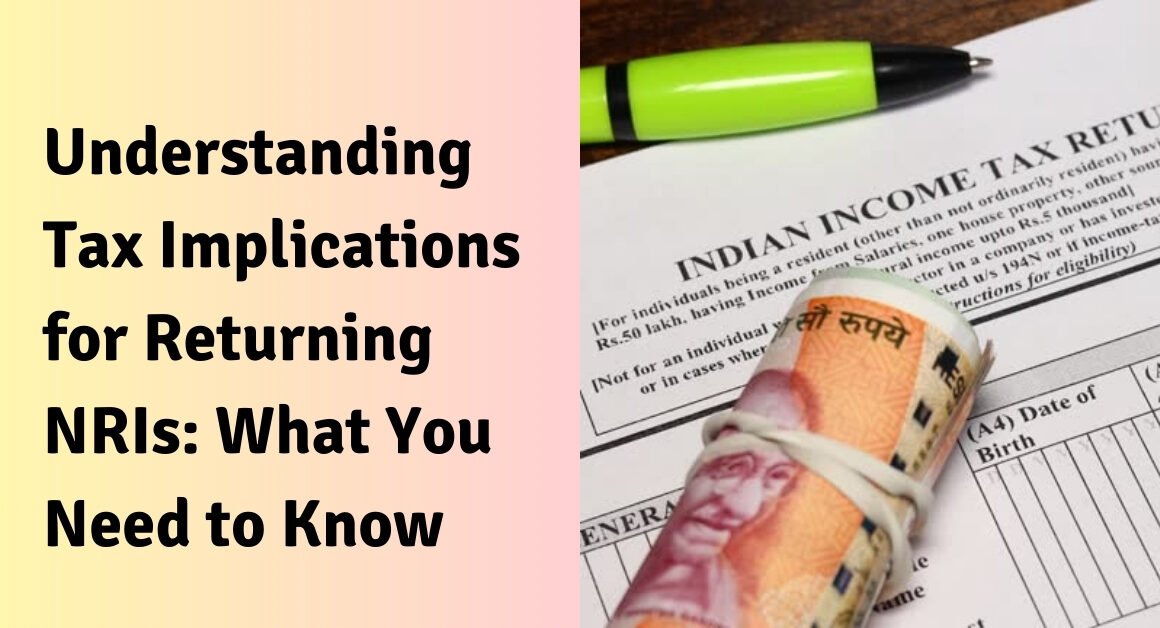Education Options for NRI Children Returning to India: Schools and Colleges
As Non-Resident Indian (NRI) families consider returning to India, one of the most important factors to consider is the education of their children. The Indian education system offers a wide range of options for returning NRI children, from international schools to traditional Indian institutions. This guide will help you understand the various educational pathways available for your children when moving back to India. International Schools International schools in India offer curricula that are globally recognized, making them a popular choice for NRI families. These schools typically follow one of these international curriculum, International Baccalaureate (IB), Cambridge International Examinations (CIE), or American curriculum. Benefits of international schools include: However, these schools often have higher fees compared to other options. You may like to read this: The Best International Schools in India for Returning NRIs Indian Curriculum Schools India has several national and state boards that offer quality education: Central Board of Secondary Education (CBSE), Indian Certificate of Secondary Education (ICSE), State Boards These schools offer: The curriculum might be challenging for children who are not fluent in Hindi or the local language. For families looking for non-traditional approaches, India offers alternative education options such as: Montessori schools, Waldorf schools, and Open schooling through the National Institute of Open Schooling (NIOS) These schools provide flexible learning environments and can be suitable for children who need to catch up on the Indian curriculum or prefer non-conventional teaching methods. College Education Options India has numerous prestigious universities offering a wide range of courses: Delhi University, Mumbai University, Bangalore University, etc. These universities offer: India’s premier institutes are known for their excellent education and high employment rates: Indian Institutes of Technology (IITs), Indian Institutes of Management (IIMs), All India Institute of Medical Sciences (AIIMS) Admission to these institutes is highly competitive and often requires clearing tough entrance exams. Private Universities Private universities in India often offer more flexibility and modern facilities: Manipal University, BITS Pilani, Ashoka University These universities may have: However, they generally have higher fees compared to government institutions. Some foreign universities have campuses or partnerships in India, offering international degrees: Georgia Institute of Technology (partnership with IIT Bombay), Lancaster University (campus in Gurgaon) These provide international education without leaving India but can be expensive. Preparing for the Transition Conclusion Returning to India offers NRI children a unique opportunity to experience India’s rich cultural heritage while receiving quality education. Whether you choose an international school, an Indian curriculum school, or a premier college, the key is to find an institution that best fits your child’s needs and aspirations. With proper research and preparation, your child can have a smooth transition into the Indian education system and set the foundation for a bright future. Disclaimer: The information provided here is for educational and informational purposes only and should not be construed as financial, legal, or tax advice. Consult with a qualified professional before making any investment decisions. We do not accept any liability for errors or omissions in this information nor any direct, indirect, or consequential losses arising from its use.
Real Estate Investment Guide for Returning NRIs: Buying and Selling Property
As a Non-Resident Indian (NRI) returning to India, investing in real estate can be an attractive option for both personal and financial reasons. Owning a property in India not only provides a sense of belonging but also offers the potential for capital appreciation and rental income. However, navigating the real estate market as an NRI can be complex, with various legal, financial, and taxation aspects to consider. In this blog post, we will provide a comprehensive guide for NRIs looking to buy or sell property in India. Buying Property in India as an NRI 1. Eligibility and Restrictions NRIs are eligible to purchase residential and commercial properties in India. However, there are certain restrictions on buying agricultural land, plantation properties, or farmhouses. It is essential to familiarize yourself with the Foreign Exchange Management Act (FEMA) regulations and the specific state laws governing NRI property investments. 2. Financing Options NRIs can finance their property purchases through various means, such as NRE/NRO bank accounts, home loans from Indian banks or financial institutions, or foreign currency loans from overseas lenders. It is crucial to compare the interest rates, loan terms, and eligibility criteria of different financing options to make an informed decision. 3. Due Diligence Before finalizing a property purchase, conduct thorough due diligence. This includes verifying the property title, checking for any encumbrances or legal disputes, and ensuring that the necessary approvals and permits are in place. Engage the services of a reliable real estate lawyer to assist you in the due diligence process. 4. Property Valuation Assess the fair market value of the property by consulting with registered valuers, real estate agents, and local authorities. Consider factors such as the location, amenities, infrastructure development, and market trends in the area. This will help you make an informed decision and avoid overpaying for the property. 5. Tax Implications Be aware of the tax implications of buying property in India as an NRI. Stamp duty, registration charges, and property taxes are applicable on property purchases. Additionally, if you sell the property in the future, capital gains tax may be applicable based on the holding period and other factors. Consult with a tax expert to understand your tax liabilities and plan accordingly. Selling Property in India as an NRI 1. Power of Attorney If you are not physically present in India during the property sale process, you can appoint a Power of Attorney (PoA) holder to act on your behalf. The PoA should be carefully drafted, clearly specifying the authority granted to the holder, and registered with the appropriate authorities. 2. Property Valuation Before listing your property for sale, obtain a fair market valuation from registered valuers or real estate agents. This will help you set a realistic asking price and negotiate effectively with potential buyers. Consider the prevailing market conditions, recent sales of similar properties in the area, and any unique features of your property. 3. Finding Buyers Utilize various channels to find potential buyers for your property. These may include online real estate portals, local property listings, and engaging the services of reputable real estate agents. Provide comprehensive details and high-quality photographs of your property to attract genuine buyers. 4. Legal Documentation Ensure that all legal documents related to the property, such as the title deed, encumbrance certificate, and property tax receipts, are in order. Engage a legal professional to draft the sale agreement and oversee the transfer of ownership. Be transparent about any outstanding liabilities or legal issues related to the property. 5. Repatriation of Funds After the sale of the property, NRIs can repatriate the sale proceeds outside India through authorized banking channels. The repatriation process is subject to FEMA regulations and requires proper documentation, such as a certificate from a chartered accountant and the submission of Form 15CA/15CB for tax purposes. Frequently Asked Questions (FAQs) 1. Can NRIs buy agricultural land in India? Ans – No, NRIs are not permitted to buy agricultural land, plantation properties, or farmhouses in India under the current FEMA regulations. 2. What financing options are available for NRIs to purchase property in India? Ans – NRIs can finance their property purchases through NRE/NRO bank accounts, home loans from Indian banks or financial institutions, or foreign currency loans from overseas lenders. 3. Is it mandatory to engage a real estate lawyer for property transactions in India? Ans – While not mandatory, it is highly recommended to engage the services of a reputable real estate lawyer to assist with due diligence, legal documentation, and ensuring compliance with relevant laws and regulations. 4. How can NRIs determine the fair market value of a property in India? Ans – NRIs can determine the fair market value of a property by consulting with registered valuers, real estate agents, and local authorities. They should consider factors such as location, amenities, infrastructure development, and market trends. 5. What taxes are applicable on property purchases by NRIs in India? Ans – NRIs are liable to pay stamp duty, registration charges, and property taxes on property purchases in India. Additionally, capital gains tax may be applicable if the property is sold in the future. 6. Can NRIs appoint a Power of Attorney holder to manage property transactions in India? Ans – Yes, NRIs can appoint a Power of Attorney holder to act on their behalf for property transactions in India. The PoA should be carefully drafted and registered with the appropriate authorities. 7. What documents are required for selling a property in India as an NRI? Ans – NRIs should ensure that all legal documents related to the property, such as the title deed, encumbrance certificate, and property tax receipts, are in order. The sale agreement should be drafted by a legal professional. 8. How can NRIs find potential buyers for their property in India? Ans – NRIs can find potential buyers through online real estate portals, local property listings, and by engaging the services of reputable real estate agents. Providing comprehensive details and high-quality photographs of the property can attract genuine
Understanding the Foreign Exchange Management Act (FEMA) for NRIs
As a Non-Resident Indian (NRI), navigating the complex world of financial regulations can be challenging. One crucial piece of legislation that significantly impacts your financial activities in India is the Foreign Exchange Management Act (FEMA). This comprehensive guide will help you understand FEMA, its implications for NRIs, and how it affects your financial decisions. What is FEMA? The Foreign Exchange Management Act, commonly known as FEMA, was enacted in 1999 to replace the earlier Foreign Exchange Regulation Act (FERA). FEMA came into effect on June 1, 2000, with the primary objective of facilitating external trade and payments while promoting the orderly development and maintenance of India’s foreign exchange market. Key Objectives of FEMA 1. To manage foreign exchange transactions 2. To promote the development and maintenance of India’s foreign exchange market 3. To facilitate external trade and payments 4. To encourage the orderly growth of India’s foreign exchange reserves FEMA and NRIs: What You Need to Know As an NRI, FEMA plays a crucial role in regulating your financial activities related to India. Here are some key areas where FEMA impacts NRIs: Bank Accounts: FEMA allows NRIs to maintain various types of bank accounts in India, including: Non-Resident External (NRE) Account Non-Resident Ordinary (NRO) Account Foreign Currency Non-Resident (FCNR) Account Each account type has specific rules regarding deposits, withdrawals, and repatriation of funds. Investments: FEMA regulates investments made by NRIs in India, including: – Real estate investments – Stock market investments – Mutual funds – Government securities – Corporate bonds It’s important to note that while FEMA allows NRIs to invest in many areas, there are certain restrictions and guidelines that must be followed. Remittances FEMA governs the rules for sending money to and from India. It specifies the limits on remittances and the procedures to be followed for both inward and outward remittances. Property Transactions NRIs can purchase residential or commercial property in India under FEMA guidelines. However, there are restrictions on purchasing agricultural land, plantation property, or farmhouses. Inheritance and Gifts FEMA provides guidelines for NRIs regarding inheritance of property in India and receiving gifts from resident Indians. Important FEMA Regulations for NRIs 1. Repatriation of Funds: NRIs can repatriate up to USD 1 million per financial year from their NRO accounts, subject to tax deductions. 2. Property Purchase: NRIs can purchase residential or commercial property in India but cannot buy agricultural land, plantation property, or farmhouses without RBI approval. 3. Investments: NRIs can invest in Indian companies through Foreign Direct Investment (FDI) route, subject to sectoral caps and guidelines. 4. Borrowing: There are restrictions on NRIs borrowing money in Indian Rupees, except for specific purposes like renovation of residential property. 5. Tax Implications: While FEMA is not a tax law, its regulations often have tax implications. NRIs should be aware of the tax laws applicable to their transactions under FEMA. Compliance and Penalties Adhering to FEMA regulations is crucial for NRIs. Non-compliance can result in penalties, including fines and, in severe cases, imprisonment. It’s always advisable to consult with financial and legal experts to ensure compliance with FEMA regulations. Conclusion Understanding FEMA is essential for NRIs to manage their financial affairs in India effectively. While the act provides numerous opportunities for NRIs to participate in the Indian economy, it also imposes certain restrictions to maintain the stability of the foreign exchange market. By staying informed about FEMA regulations, NRIs can make sound financial decisions and avoid potential legal complications. FAQs about FEMA for NRIs 1. Can an NRI open a savings account in India? Ans – Yes, NRIs can open NRE or NRO savings accounts in India under FEMA guidelines. 2. Are there any restrictions on NRIs selling property in India? Ans – NRIs can sell property in India, but there may be restrictions on repatriating the proceeds depending on the nature of the property and how it was acquired. 3. Can NRIs invest in mutual funds in India? Ans – Yes, NRIs can invest in mutual funds in India, subject to certain conditions and KYC norms. 4. Is FEMA applicable to Persons of Indian Origin (PIOs)? Ans – Yes, FEMA regulations apply to both NRIs and PIOs for their financial transactions related to India. 5. Can an NRI take a loan in India to purchase property? Ans – Yes, NRIs can take home loans from Indian banks or financial institutions to purchase property in India, subject to certain conditions. 6. Are there any limits on how much money an NRI can send to India? Ans – There are no limits on inward remittances to India, but the purpose of remittance should be specified and comply with FEMA regulations. 7. Can NRIs invest in Indian startups? Ans – Yes, NRIs can invest in Indian startups through various routes, including Foreign Direct Investment (FDI), subject to compliance with FEMA and other applicable regulations. 8. Is it mandatory for NRIs to declare their foreign assets in India? Ans – NRIs are not required to declare their foreign assets to Indian authorities unless they qualify as Resident Indians for tax purposes. 9. Can NRIs operate businesses in India? Ans – NRIs can operate businesses in India through various structures like wholly-owned subsidiaries or joint ventures, subject to FDI policy and FEMA regulations. 10. How does FEMA affect inheritance of property by NRIs? Ans – NRIs can inherit property in India from residents, but any income from such property is subject to FEMA regulations regarding repatriation and taxation. Disclaimer: The information provided here is for educational and informational purposes only and should not be construed as financial, legal, or tax advice. Consult with a qualified professional before making any investment decisions. We do not accept any liability for errors or omissions in this information nor any direct, indirect, or consequential losses arising from its use.
Healthcare in India for Returning NRIs: Options and Considerations
As a Non-Resident Indian (NRI) returning to India, one of the most important aspects to consider is healthcare. India’s healthcare system has undergone significant improvements in recent years, offering a range of options for NRIs. However, navigating the healthcare landscape can be challenging, especially if you have been living abroad for an extended period. In this blog post, we will explore the healthcare options available for returning NRIs and discuss the key considerations to keep in mind. Public Healthcare System India’s public healthcare system, governed by the Ministry of Health and Family Welfare, provides free or subsidized healthcare services to all citizens. Government hospitals and clinics offer a wide range of medical services, including primary care, specialized treatments, and surgical procedures. However, the public healthcare system often faces challenges such as overcrowding, long waiting times, and limited resources. As an NRI, you are entitled to access the public healthcare system upon your return to India. However, it is essential to note that the quality of care and facilities may vary across different regions and institutions. If you choose to rely on public healthcare, it is advisable to research the hospitals and clinics in your area and assess their reputation and services. Private Healthcare Providers India’s private healthcare sector has grown significantly in recent years, offering world-class medical facilities and services. Private hospitals and clinics are known for their state-of-the-art infrastructure, advanced technology, and skilled medical professionals. Many NRIs prefer private healthcare providers for their quality of care, shorter waiting times, and personalized attention. When choosing a private healthcare provider, consider factors such as the hospital’s accreditation, the expertise of the medical staff, and the range of services offered. It is also essential to consider the costs involved, as private healthcare can be expensive compared to public healthcare. Some private hospitals offer package deals and discounts for NRIs, so it’s worth exploring these options. Health Insurance Having comprehensive health insurance coverage is crucial for returning NRIs. Health insurance can provide financial protection against the high costs of medical treatments and hospitalization. There are several health insurance options available in India, including individual plans, family floater plans, and senior citizen plans. When selecting a health insurance policy, consider factors such as the coverage amount, the network of hospitals covered, the waiting period for pre-existing conditions, and the premium costs. It is also important to disclose any pre-existing medical conditions to the insurance provider to avoid any issues with claims in the future. NRIs who have been living abroad may also have international health insurance coverage. It is essential to check with your international insurance provider to understand the coverage and validity of your policy in India. Some international insurance plans may have tie-ups with Indian hospitals or offer cashless treatment options. Telemedicine and Online Consultations The COVID-19 pandemic has accelerated the adoption of telemedicine and online consultations in India. Many hospitals and healthcare providers now offer virtual consultations with doctors, allowing patients to seek medical advice from the comfort of their homes. This can be particularly convenient for NRIs who may be adjusting to life back in India or have mobility constraints. Telemedicine platforms enable you to connect with qualified doctors, obtain prescriptions, and receive follow-up care remotely. However, it is crucial to ensure that you are using a reputable telemedicine service and consulting with licensed medical professionals. Preventive Healthcare Preventive healthcare is an essential aspect of maintaining good health and reducing the risk of chronic diseases. As an NRI returning to India, it is advisable to prioritize preventive healthcare measures. This includes regular health check-ups, screenings, and immunizations. Many hospitals and clinics in India offer comprehensive health check-up packages tailored to different age groups and health profiles. These packages typically include blood tests, imaging scans, and consultations with specialists. Investing in preventive healthcare can help detect potential health issues early and enable timely intervention. Mental Healthcare Mental healthcare is an often-overlooked aspect of overall well-being. Returning to India after living abroad can be a significant transition, and it is not uncommon to experience stress, anxiety, or cultural readjustment challenges. It is essential to prioritize your mental health and seek support when needed. India has made strides in improving mental healthcare services in recent years. There are now several mental health professionals, including psychiatrists, psychologists, and counselors, who can provide therapy and support. Many hospitals and clinics also have dedicated mental health departments. If you are experiencing mental health concerns, don’t hesitate to reach out to a qualified professional. You can also explore online therapy options or support groups for NRIs to connect with others who may be going through similar experiences. Frequently Asked Questions (FAQs) 1. Are NRIs eligible for public healthcare in India? Ans – Yes, NRIs are entitled to access India’s public healthcare system upon their return. However, the quality of care and facilities may vary across different regions and institutions. 2. What should NRIs consider when choosing a private healthcare provider in India? Ans – When choosing a private healthcare provider, NRIs should consider factors such as the hospital’s accreditation, the expertise of the medical staff, the range of services offered, and the costs involved. 3. Is health insurance mandatory for NRIs returning to India? Ans – While health insurance is not mandatory, it is highly recommended for NRIs to have comprehensive health insurance coverage to protect against the high costs of medical treatments and hospitalization. 4. Can NRIs continue using their international health insurance in India? Ans – NRIs should check with their international insurance provider to understand the coverage and validity of their policy in India. Some international insurance plans may have tie-ups with Indian hospitals or offer cashless treatment options. 5. What is telemedicine, and how can it benefit NRIs? Ans – Telemedicine involves virtual consultations with doctors, allowing patients to seek medical advice remotely. This can be convenient for NRIs who may be adjusting to life back in India or have mobility constraints. 6. Why is preventive healthcare important for NRIs returning to
How to Transfer Assets Seamlessly When Moving Back to India?
As a Non-Resident Indian (NRI) moving back to India, one of the crucial aspects of your relocation is the seamless transfer of your assets. This process involves transferring your investments, bank balances, and other financial holdings from your country of residence to India. In this blog post, we will guide you through the steps involved in transferring your assets smoothly and efficiently when moving back to India. Step 1: Assess Your Assets The first step in transferring your assets is to assess your current financial holdings. Make a comprehensive list of all your assets, including bank accounts, investments (such as stocks, bonds, mutual funds), real estate, and any other valuable possessions. This will give you a clear picture of your financial position and help you plan the transfer process effectively. Step 2: Notify Your Financial Institutions Inform your financial institutions, such as banks and investment companies, about your intention to move back to India. Provide them with your updated contact information and inquire about the procedures for closing or transferring your accounts. Some institutions may require specific documentation or have certain restrictions on transfers, so it’s essential to start this process well in advance. Step 3: Repatriate Funds from Foreign Bank Accounts If you have funds in foreign bank accounts, you’ll need to repatriate them to India. You can transfer the money to your Non-Resident External (NRE) or Non-Resident Ordinary (NRO) account in India. NRE accounts offer the advantage of tax-free interest and easy repatriation of funds, while NRO accounts are suitable for income earned in India. Ensure that you follow the proper procedures and provide the necessary documentation for the transfer. Step 4: Transfer Your Investments Transferring your investments, such as stocks, bonds, or mutual funds, requires careful planning. You have the option to either sell your investments and repatriate the funds to India or transfer the ownership of the investments to an Indian depository. If you choose to sell your investments, consider the tax implications in both your country of residence and India. If you decide to transfer the ownership, you’ll need to follow the specific procedures laid down by the Indian depositories and comply with the Foreign Exchange Management Act (FEMA) regulations. Step 5: Plan for Real Estate Holdings If you own real estate in your country of residence, you’ll need to decide whether to sell the property or retain it. If you choose to sell, you can repatriate the sale proceeds to India after fulfilling the necessary tax obligations. If you decide to keep the property, you may need to inform the relevant authorities and comply with the applicable regulations. Additionally, if you own real estate in India, ensure that the ownership documents are up to date and the property taxes are paid regularly. Step 6: Consider Tax Implications Moving back to India has tax implications that you need to consider carefully. Your residential status for tax purposes will change, and you’ll be subject to Indian tax laws on your global income. It’s essential to consult with a tax professional who specializes in NRI taxation to understand your tax liabilities and plan your finances accordingly. They can help you optimize your tax position and ensure compliance with Indian tax regulations. Step 7: Seek Professional Assistance Transferring assets when moving back to India can be a complex process, involving various legal and financial considerations. It’s highly recommended to seek the assistance of professional advisors, such as financial planners, tax consultants, and legal experts, who have experience in handling NRI matters. They can guide you through the process, help you navigate the regulatory requirements, and ensure that your assets are transferred seamlessly. Frequently Asked Questions (FAQs) 1. Can NRIs transfer their foreign bank account balances to India? Ans – Yes, NRIs can transfer their foreign bank account balances to India by repatriating the funds to their NRE or NRO accounts. They need to follow the proper procedures and provide the necessary documentation for the transfer. 2. What is the difference between an NRE and an NRO account? Ans – An NRE account is a rupee-denominated account that allows for easy repatriation of funds and offers tax-free interest. An NRO account, on the other hand, is suitable for income earned in India and has certain restrictions on repatriation. 3. How can NRIs transfer their foreign investments to India? Ans – NRIs can transfer their foreign investments to India by either selling the investments and repatriating the funds or transferring the ownership of the investments to an Indian depository. They need to comply with the FEMA regulations and follow the specific procedures laid down by the Indian depositories. 4. What are the tax implications of moving back to India for NRIs? Ans – When NRIs move back to India, their residential status for tax purposes changes, and they become subject to Indian tax laws on their global income. It’s essential to consult with a tax professional to understand the tax liabilities and plan finances accordingly. 5. Can NRIs retain their foreign real estate properties after moving back to India? Ans – Yes, NRIs can retain their foreign real estate properties after moving back to India. However, they may need to inform the relevant authorities and comply with the applicable regulations. 6. What documents are required for transferring assets to India? Ans – The documents required for transferring assets to India may vary depending on the type of asset and the financial institution involved. Generally, NRIs may need to provide proof of identity, proof of address, PAN card, and other specific documents as requested by the institution. 7. How long does it take to transfer funds from foreign bank accounts to India? Ans – The time taken to transfer funds from foreign bank accounts to India depends on the banking channels and the specific procedures involved. It usually takes a few working days for the funds to be credited to the NRI’s account in India. 8. Are there any limits on the amount of funds that NRIs can repatriate to
Investing in India as a Returning NRI: Opportunities and Challenges
As a Non-Resident Indian (NRI) returning to India, you may be looking to explore investment opportunities in your home country. India’s growing economy, diverse market, and favorable government policies have made it an attractive destination for investment. However, navigating the investment landscape as a returning NRI can also present certain challenges. In this blog post, we will delve into the opportunities and challenges of investing in India as a returning NRI, helping you make informed decisions and maximize your investment potential. Opportunities for Investing in India You may like to read: Investment Opportunities for NRIs Returning to India Challenges of Investing in India Strategies for Successful Investing Disclaimer: The information provided here is for educational and informational purposes only and should not be construed as financial, legal, or tax advice. Consult with a qualified professional before making any investment decisions. We do not accept any liability for errors or omissions in this information nor any direct, indirect, or consequential losses arising from its use.
Navigating the Indian Banking System as an NRI: Accounts, Deposits, and Loans
As a Non-Resident Indian (NRI), managing your finances in India can be a complex task. The Indian banking system offers various options for NRIs to handle their money matters, ranging from opening bank accounts to making deposits and availing loans. In this blog post, we will guide you through the essentials of navigating the Indian banking system as an NRI, helping you make informed decisions and maximize your financial benefits. NRI Bank Accounts The Indian banking system provides three main types of accounts for NRIs: Choosing the right type of NRI account depends on your specific requirements, such as the source of funds, repatriation needs, and tax considerations. It is advisable to consult with a financial expert specializing in NRI banking to determine the most suitable option for you. NRI Deposits Indian banks offer various deposit schemes for NRIs, catering to different investment horizons and risk appetites. Some popular NRI deposit options include: When choosing a deposit scheme, consider factors such as the interest rate, tenure, premature withdrawal provisions, and taxation implications. It is also essential to compare offers from different banks to find the best deal that aligns with your financial goals. NRI Loans NRIs can avail various types of loans from Indian banks, including: When applying for loans, it is crucial to assess your repayment capacity, compare interest rates from different banks, and understand the documentation requirements. NRIs may need to provide additional documents, such as passport copies, visa details, and proof of foreign income, to establish their eligibility for loans. Regulatory Compliance As an NRI, it is essential to comply with the regulatory guidelines set by the Reserve Bank of India (RBI) and the Foreign Exchange Management Act (FEMA) when dealing with the Indian banking system. This includes adhering to the repatriation limits, reporting requirements, and taxation norms applicable to NRI accounts and investments. It is advisable to seek guidance from a financial expert well-versed in NRI banking regulations to ensure compliance and avoid any unintended violations. Frequently Asked Questions (FAQs) Ans – Yes, NRIs can open joint accounts with resident Indians. The joint account holder can be a resident Indian or another NRI. Ans – NRIs can freely repatriate funds from their NRE accounts without any restrictions or limits. However, it is essential to maintain proper documentation for the source of funds. Ans – NRIs can repatriate up to USD 1 million per financial year from their NRO accounts, subject to certain conditions and documentation requirements. Ans – NRIs can transfer funds to their Indian bank accounts through various methods, such as wire transfers, online banking, or by depositing foreign currency checks. It is important to follow the proper procedures and provide necessary documentation. Ans – Yes, NRIs can claim tax benefits on home loans in India, subject to certain conditions. They can claim deductions for principal repayment and interest paid on the loan under the relevant sections of the Income Tax Act. Ans – Yes, some banks offer overdraft facilities on NRE and NRO accounts, subject to certain conditions and eligibility criteria. Ans – NRE fixed deposits generally have tenures ranging from 7 days to 10 years, while FCNR fixed deposits have tenures ranging from 1 year to 5 years. Ans – Yes, many Indian banks offer online loan application facilities for NRIs. However, the documentation and verification process may require physical presence or submission of documents through authorized representatives. Ans – Most Indian banks offer online banking facilities and mobile apps for NRIs to conveniently access their accounts, view statements, and conduct transactions from anywhere in the world. Ans – NRIs should first contact their bank’s NRI banking division or relationship manager for assistance. If the issue persists, they can escalate the matter to the bank’s grievance redressal department or seek guidance from financial experts specializing in NRI banking. Disclaimer: The information provided here is for educational and informational purposes only and should not be construed as financial, legal, or tax advice. Consult with a qualified professional before making any investment decisions. We do not accept any liability for errors or omissions in this information nor any direct, indirect, or consequential losses arising from its use.
Understanding Tax Implications for Returning NRIs: What You Need to Know?
As a Non-Resident Indian (NRI) planning to return to India, it is crucial to understand the tax implications that come with this transition. The Indian tax system has specific provisions for NRIs, and being aware of these regulations can help you plan your finances effectively and avoid any unintended tax liabilities. In this blog post, we will delve into the key tax considerations for returning NRIs and provide you with the information you need to navigate this complex landscape. Residential Status and Tax Liability Your residential status is the primary factor that determines your tax liability in India. As an NRI returning to India, your residential status will change based on the duration of your stay in the country. If you stay in India for 182 days or more in a financial year, or if you have stayed in India for 365 days or more in the preceding four financial years and 60 days or more in the relevant financial year, you will be considered a resident for tax purposes. Taxation of Income Once you become a resident, your global income becomes taxable in India. This means that any income earned from sources within India, as well as income earned from sources outside India, will be subject to Indian tax laws. It is important to note that India has Double Taxation Avoidance Agreements (DTAAs) with several countries to prevent the double taxation of income. If you have paid taxes on your foreign income in another country, you may be eligible for tax relief under the applicable DTAA. Taxation of Salary Income If you are returning to India and will be employed, your salary income will be taxable in India. The tax rates applicable to your salary income will depend on your total taxable income and the tax slab you fall under. It is important to note that the tax treatment of certain salary components, such as allowances and perquisites, may differ for returning NRIs compared to resident employees. Taxation of Investment Income As a returning NRI, you may have investments in India, such as fixed deposits, mutual funds, or shares. The taxation of investment income depends on the nature of the investment and the holding period. For example, interest earned on NRE (Non-Resident External) and FCNR (Foreign Currency Non-Resident) accounts is exempt from tax in India. However, interest earned on NRO (Non-Resident Ordinary) accounts is taxable at the applicable slab rates. Capital gains arising from the sale of investments are also subject to tax. Short-term capital gains (STCG) are taxed at 15% for equity shares and equity-oriented mutual funds, while long-term capital gains (LTCG) exceeding Rs. 1 lakh are taxed at 10% for these investments. For debt mutual funds and other assets, STCG is taxed as per the applicable slab rates, while LTCG is taxed at 20% with indexation benefits. Taxation of Foreign Assets and Income If you have foreign assets or income, such as bank accounts, properties, or investments, you must disclose them in your Indian tax return. The Black Money (Undisclosed Foreign Income and Assets) and Imposition of Tax Act, 2015, mandates the disclosure of foreign assets and provides for stringent penalties for non-disclosure. It is crucial to maintain proper documentation and seek professional guidance to ensure compliance with these regulations. Tax Deductions and Exemptions As a returning NRI, you can avail of various tax deductions and exemptions available under the Indian Income Tax Act. These include deductions for investments in tax-saving instruments like Public Provident Fund (PPF), National Pension System (NPS), and Equity Linked Savings Scheme (ELSS) mutual funds under Section 80C. You can also claim deductions for health insurance premiums, education loan interest, and certain donations. Tax Filing Obligations As a resident taxpayer, you are required to file an income tax return in India if your total income exceeds the basic exemption limit. The tax return must be filed by the due date, which is usually July 31 of the assessment year. It is important to keep accurate records of your income, investments, and expenses to facilitate the tax filing process. Frequently Asked Questions (FAQs) 1. When does an NRI become a resident for tax purposes in India? Ans – An NRI becomes a resident for tax purposes in India if they stay in the country for 182 days or more in a financial year, or if they have stayed in India for 365 days or more in the preceding four financial years and 60 days or more in the relevant financial year. 2. Is the global income of a returning NRI taxable in India? Ans – Yes, once an NRI becomes a resident, their global income becomes taxable in India. This includes income earned from sources within India as well as income earned from sources outside India. 3. How is salary income taxed for a returning NRI? Ans – Salary income earned by a returning NRI is taxable in India at the applicable tax slab rates. The tax treatment of certain salary components, such as allowances and perquisites, may differ for returning NRIs compared to resident employees. 4. What is the tax treatment of interest earned on NRE and FCNR accounts? Ans – Interest earned on NRE (Non-Resident External) and FCNR (Foreign Currency Non-Resident) accounts is exempt from tax in India. 5. How are capital gains from the sale of investments taxed for a returning NRI? Ans – Short-term capital gains (STCG) are taxed at 15% for equity shares and equity-oriented mutual funds, while long-term capital gains (LTCG) exceeding Rs. 1 lakh are taxed at 10% for these investments. For debt mutual funds and other assets, STCG is taxed as per the applicable slab rates, while LTCG is taxed at 20% with indexation benefits. 6. Is it mandatory for a returning NRI to disclose foreign assets and income in their Indian tax return? Ans – Yes, as per the Black Money (Undisclosed Foreign Income and Assets) and Imposition of Tax Act, 2015, it is mandatory for a returning NRI to disclose their foreign assets
The Complete Guide to Repatriation for NRIs: Legal and Financial Aspects
As a Non-Resident Indian (NRI), understanding the process of repatriation is crucial for managing your finances and ensuring compliance with legal requirements. Repatriation refers to the transfer of funds, assets, or income from India to your country of residence. In this comprehensive guide, we will delve into the legal and financial aspects of repatriation for NRIs, helping you navigate this complex landscape with ease. Legal Aspects of Repatriation Foreign Exchange Management Act (FEMA) The Foreign Exchange Management Act (FEMA) is the primary legislation governing foreign exchange transactions in India. As an NRI, it is essential to familiarise yourself with the provisions of FEMA related to repatriation. FEMA regulates the inflow and outflow of foreign exchange, ensuring that transactions are conducted through authorised channels and within the prescribed limits. Repatriation of Funds from NRE and FCNR Accounts NRIs can freely repatriate funds from their Non-Resident External (NRE) and Foreign Currency Non-Resident (FCNR) accounts without any restrictions. The principal amount invested, as well as the interest earned, can be repatriated to the NRI’s country of residence. However, it is important to maintain proper documentation and adhere to the reporting requirements set by the Reserve Bank of India (RBI). Repatriation of Funds from NRO Accounts Repatriation of funds from Non-Resident Ordinary (NRO) accounts is subject to certain conditions. NRIs can repatriate up to USD 1 million per financial year from their NRO accounts, subject to tax compliance and fulfillment of other regulatory requirements. Any amount exceeding this limit requires prior approval from the RBI. Repatriation of Sale Proceeds of Immovable Property NRIs can repatriate the sale proceeds of immovable property in India, subject to certain conditions. The property should have been acquired in accordance with FEMA regulations, and the funds used for the purchase should have been either from the NRI’s NRE/FCNR account or through proper banking channels. The repatriation of sale proceeds is subject to tax compliance and other regulatory requirements. Financial Aspects of Repatriation Taxation of Repatriated Funds Repatriated funds are subject to taxation in India based on the source of income. Interest earned on NRE and FCNR accounts is exempt from tax in India. However, interest earned on NRO accounts is taxable as per the applicable tax slab rates. Capital gains arising from the sale of assets in India are also subject to tax, depending on the nature of the asset and the holding period. Tax Deducted at Source (TDS) When repatriating funds from India, NRIs may be subject to Tax Deducted at Source (TDS). TDS is applicable on various sources of income, such as interest, dividends, and capital gains. It is important to obtain a TDS certificate from the deductor and claim the same while filing your tax returns in India. Repatriation of Mutual Fund Investments NRIs can repatriate the proceeds from the redemption of mutual fund investments in India. However, the repatriation process and tax implications vary depending on the type of mutual fund (equity or debt) and the holding period. It is advisable to consult with a financial advisor specializing in NRI investments to understand the specific requirements and optimize your tax liability. Repatriation of Pension and Provident Fund NRIs who have worked in India and have accumulated funds in their pension or provident fund accounts can repatriate these funds upon retirement or permanent settlement abroad. The repatriation process involves submitting the necessary documents to the concerned authorities and complying with the prescribed regulations. Frequently Asked Questions (FAQs) 1. What is repatriation, and why is it important for NRIs? Ans – Repatriation is the process of transferring funds, assets, or income from India to an NRI’s country of residence. It is important for NRIs to understand the legal and financial aspects of repatriation to ensure compliance with regulations and optimize their financial management. 2. Can NRIs freely repatriate funds from their NRE and FCNR accounts? Ans – Yes, NRIs can freely repatriate funds from their NRE and FCNR accounts without any restrictions, subject to proper documentation and reporting requirements set by the RBI. 3. Is there a limit on the amount that can be repatriated from NRO accounts? Ans – NRIs can repatriate up to USD 1 million per financial year from their NRO accounts, subject to tax compliance and other regulatory requirements. Any amount exceeding this limit requires prior approval from the RBI. 4. What are the conditions for repatriating the sale proceeds of immovable property in India? Ans – To repatriate the sale proceeds of immovable property in India, the property should have been acquired in accordance with FEMA regulations, and the funds used for the purchase should have been either from the NRI’s NRE/FCNR account or through proper banking channels. The repatriation is subject to tax compliance and other regulatory requirements. 5. How is the interest earned on NRE, FCNR, and NRO accounts taxed in India? Ans – Interest earned on NRE and FCNR accounts is exempt from tax in India. However, interest earned on NRO accounts is taxable as per the applicable tax slab rates. 6. What is Tax Deducted at Source (TDS), and how does it apply to repatriated funds? Ans – TDS is the tax deducted by the payer before making the payment to the NRI. It is applicable on various sources of income, such as interest, dividends, and capital gains. NRIs should obtain a TDS certificate and claim the same while filing their tax returns in India. 7. Can NRIs repatriate the proceeds from the redemption of mutual fund investments in India? Ans – Yes, NRIs can repatriate the proceeds from the redemption of mutual fund investments in India. However, the repatriation process and tax implications vary depending on the type of mutual fund and the holding period. 8. How can NRIs repatriate their pension and provident fund accumulations? Ans – NRIs who have worked in India and have accumulated funds in their pension or provident fund accounts can repatriate these funds upon retirement or permanent settlement abroad by submitting the necessary documents to the concerned authorities and complying
How to Invest in Indian Startups as a Returning NRI?
As a Non-Resident Indian (NRI) returning to India, you may be looking for exciting investment opportunities that offer the potential for high returns. The Indian startup ecosystem has been thriving in recent years, with numerous innovative ventures across various sectors. Investing in Indian startups can be a lucrative option for NRIs seeking to diversify their investment portfolio and participate in the growth story of the country. In this blog post, we will guide you through the process of investing in Indian startups as a returning NRI. Understand the Startup Ecosystem: Before investing in Indian startups, it is essential to familiarize yourself with the startup ecosystem in the country. Research the different sectors that are witnessing significant startup activity, such as technology, e-commerce, fintech, healthcare, and education. Understand the market trends, regulatory environment, and growth potential of these sectors. Attend startup events, webinars, and conferences to network with entrepreneurs, investors, and industry experts. Assess Your Risk Appetite: Investing in startups inherently carries a higher level of risk compared to traditional investment avenues. Startups are often in the early stages of their journey and face numerous challenges, such as market acceptance, competition, and scalability. As an investor, you should assess your risk appetite and determine the amount of capital you are willing to allocate to startup investments. It is crucial to have a well-diversified investment portfolio and not to invest more than you can afford to lose. Choose the Investment Route: There are several ways to invest in Indian startups as an NRI: Angel Investment: Angel investing involves providing funding to early-stage startups in exchange for equity ownership. As an angel investor, you can directly invest in startups that align with your interests and expertise. However, angel investing requires significant due diligence and hands-on involvement in mentoring and guiding the startup. Venture Capital Funds: Venture capital (VC) funds are professional investment firms that pool capital from multiple investors to invest in high-growth startups. As an NRI, you can invest in VC funds that focus on the Indian startup ecosystem. VC funds have experienced investment teams that identify promising startups, conduct due diligence, and provide strategic support to their portfolio companies. Crowdfunding Platforms: Crowdfunding platforms allow startups to raise funds from a large number of investors through online campaigns. As an NRI, you can explore crowdfunding platforms that operate in India and invest in startups that resonate with your investment goals. However, it is important to thoroughly review the crowdfunding platform’s regulations, track record, and the terms of the investment. Conduct Due Diligence: Before investing in a startup, it is crucial to conduct thorough due diligence. Evaluate the startup’s business model, market potential, competitive landscape, and financial projections. Assess the founding team’s background, expertise, and track record. Review the startup’s legal structure, intellectual property rights, and regulatory compliance. Engage with the founders, seek clarifications, and gather as much information as possible to make an informed investment decision. Understand Valuation and Term Sheets: Startups are often valued based on their growth potential, market size, and competitive advantages. As an investor, it is important to understand the valuation methodology and negotiate favorable terms. The term sheet outlines the key terms of the investment, including the valuation, equity stake, voting rights, and exit provisions. Seek the assistance of legal and financial advisors to review and negotiate the term sheet to protect your interests as an investor. Monitor and Support the Startup: After investing in a startup, it is essential to actively monitor its progress and provide strategic support. Engage with the founders regularly, offer your expertise and network, and help the startup navigate challenges. Attend board meetings, review financial reports, and monitor key performance indicators. However, strike a balance between providing guidance and allowing the founders to operate independently. Plan for Exit Opportunities: Investing in startups is typically a long-term commitment, with exit opportunities arising through mergers, acquisitions, or initial public offerings (IPOs). As an investor, it is important to have a clear exit strategy in mind and align it with the startup’s growth trajectory. Understand the potential exit scenarios, timelines, and valuation expectations. Have open discussions with the founders and co-investors regarding exit plans and ensure alignment of interests. Stay Updated with Regulatory Requirements: As an NRI investing in Indian startups, it is crucial to stay updated with the regulatory requirements and compliance obligations. Familiarize yourself with the Foreign Exchange Management Act (FEMA) regulations, which govern foreign investments in India. Comply with the reporting requirements, such as filing Form FC-GPR (Foreign Currency-Gross Provisional Return) with the Reserve Bank of India (RBI) for each investment made. Seek the guidance of legal and tax professionals to ensure compliance with applicable laws and regulations. Investing in Indian startups as a returning NRI can be an exciting and rewarding journey. However, it is essential to approach startup investments with a long-term perspective, thorough due diligence, and a well-diversified investment strategy. Seek the advice of experienced professionals, such as financial advisors, legal experts, and industry mentors, to navigate the complexities of startup investing. With the right approach and mindset, investing in Indian startups can potentially yield significant returns while contributing to the growth and innovation of the country’s entrepreneurial ecosystem.Disclaimer: The information provided here is for educational and informational purposes only and should not be construed as financial, legal, or tax advice. Consult with a qualified professional before making any investment decisions. We do not accept any liability for errors or omissions in this information nor any direct, indirect, or consequential losses arising from its use.











